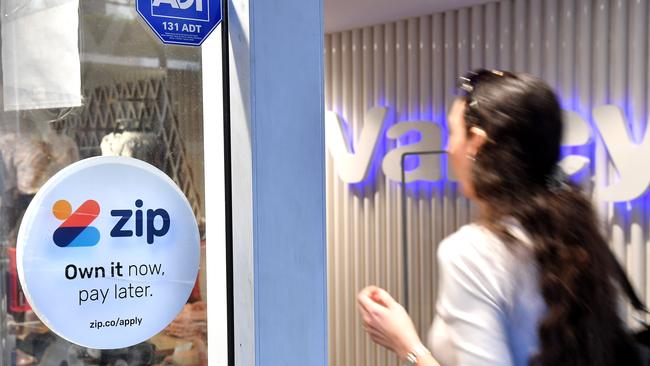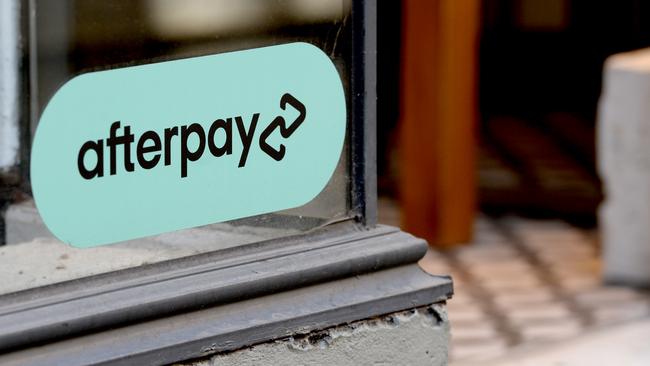Why Afterpay and Zip’s stock market value has taken a battering
The buy now, pay later sector has taken a battering on the stock market and further “headwinds” have experts questioning whether they will ever recover.

Costs
Don't miss out on the headlines from Costs. Followed categories will be added to My News.
The buy now, pay later sector has experienced one of the biggest dives in fortune on the stock market after originally being celebrated by investors.
The big players such as Zip have gone from eye-watering valuations during the pandemic last year to dramatically plunging in 2022.
Zip had a market capitalisation of about $6 billion – which was more than retailer JB Hi-Fi – but this has since plummeted to around $600 million, a staggering 87 per cent decline in the share price compared to last year.
Zip shares now sit around 87 cents in May versus $14.53 a year ago.
Afterpay recorded a net loss of $345.5 million over the six months to December 31, 2021.
That’s a considerable decline from its previous half-yearly results, where it shed $79.2 million in the first half of 2021.
In all, that means the company’s losses ballooned by 336 per cent.

As a result, Afterpay’s US owner Block has seen its shares drop by a whopping 60 per cent in a year.
The drop in values has seen the sector scrambling to move into new services to attract customers.
Afterpay announced it was moving into even more services such as restaurants, butchers and hairdressers as it targets “bricks and mortar” retailers, while consumer advocates warned its latest offering is “dangerous”.
Zip also signed a deal with Qantas introducing its four repayments to purchase flights.
Grant Halverson, CEO of Financial Services, said Australian BNPL stocks have lost just over $41 billion in shareholder value in one year.
“It’s a total rout,” he said, adding the sector had dropped from 12 providers down to eight in the past year.
“Some of the headwinds are: increase funding costs, consumers spending less on stuff, competition, regulation, and the dramatic change in stock markets – it’s a tough ask,” he added.

Omkar Joshi, portfolio manager at fund management company Opal Capital, described BNPL shares as existing in a “bit of a bubble” previously but said current market valuations were more sensible.
“We’ve seen the crazy behaviour in the market, and now we’re coming back to where it should have been,” he told the Sydney Morning Herald.
He said with rising interest rates and a slowing economy, the first areas to register higher customer defaults was unsecured loans such as are offered in the BNPL sector causing concerns for investors.
Players like Afterpay and Zip have also never delivered a profit and investors have been spooked by stocks that might not pay out dividends for years and are instead turning to higher returns on bonds.
Meanwhile, UBS analyst Tom Beadle has cut the price target for Zip shares to 90c – slightly above their trading amount this week.

In November last year, Afterpay also revealed it would be available in 160 pubs across Australia which alarmed consumer advocates who said it could lead to a “debt spiral” for people.
New BNPL players are also pushing into the property sector by offering to pay people’s rent.
Experts have previously predicted potential “carnage” for the buy now, pay later sector as providers burn through cash, bad debts balloon and customers retreat from using the service – a model which they say isn’t sustainable.
Originally published as Why Afterpay and Zip’s stock market value has taken a battering





